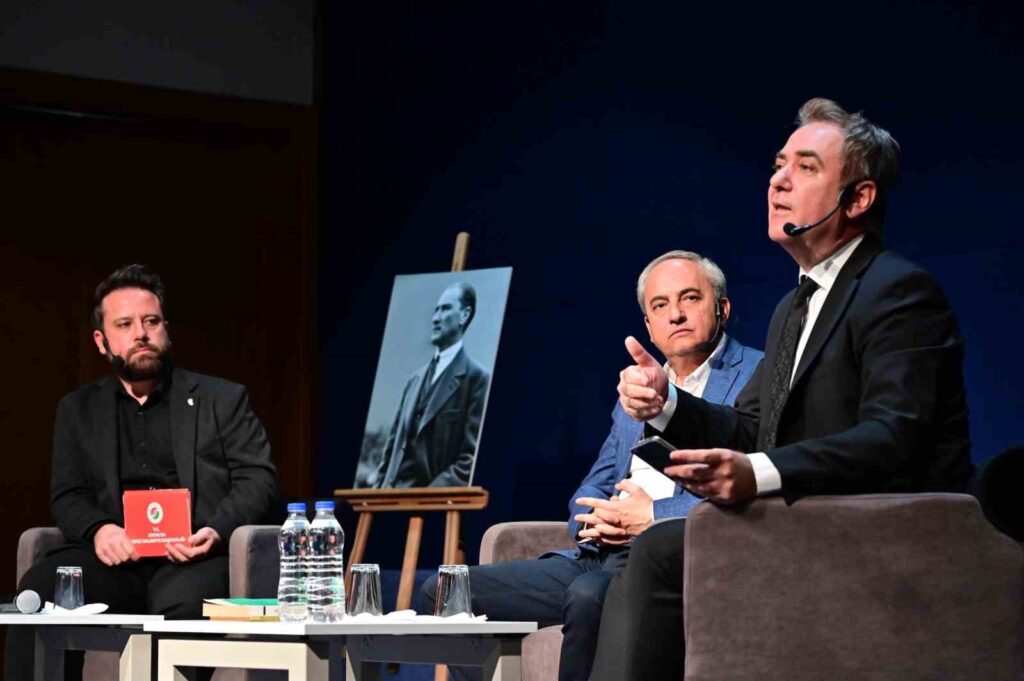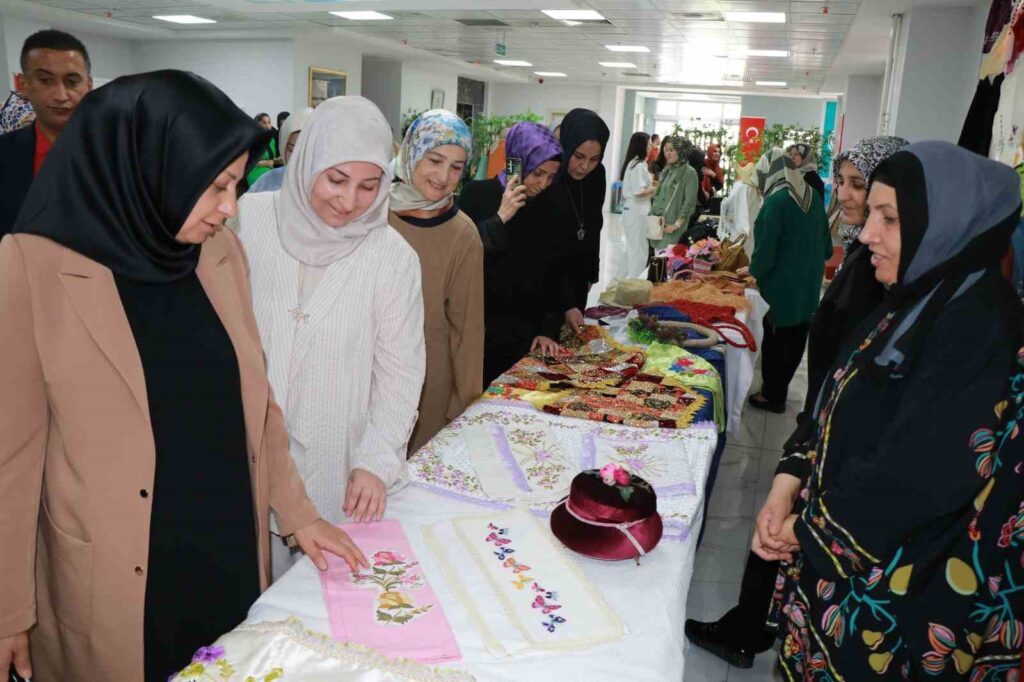A conversation with Sinan Meydan about Atatürk, women, and children at Kepez Forum.
The ‘Kepez Forum’ organized by Kepez Municipality hosted historian and author Sinan Meydan for a special program on Atatürk. Author Meydan discussed the child and women policies during the Atatürk era, emphasizing the impact of women and children in the War of Independence…

The guest of the Atatürk special program of the ‘Kepez Forum’ organized by Kepez Municipality was historian and writer Sinan Meydan. Meydan, who described the child and women policies during the Atatürk era, emphasized that the most affected by the War of Independence were women and children, and the ones who hurt Atatürk the most were the orphaned children.
With the motto “The future of Antalya is Kepez,” the Kepez Forum, which started in September, brings together the residents of the city with important figures in literature, culture, and art every month. The guest of the November Atatürk special program of the Kepez Forum was historian and writer Sinan Meydan. In the discussion titled Atatürk, Women, and Children, the importance that the founder of our Republic, Gazi Mustafa Kemal Atatürk, placed on women and children was discussed. The forum, held at the Antalya Library with the participation of Kepez Mayor Mesut Kocagöz, addressed child and women policies during the Atatürk era. In his opening speech for the discussion on Atatürk, Women, and Children, Kepez Mayor Mesut Kocagöz described Kepez, which has a population of 650,000 and is larger than 55 provinces, with people from 7 regions and 81 provinces, stating that “Kepez is a complete Turkey.” Continuing his words by saying, “Our path is the path of Atatürk,” Mayor Kocagöz stated, “We will continue to follow in his footsteps. Our children are our future. Our women, as Atatürk said, ‘Every beautiful thing done on earth is the work of women.’ There is only one Children’s Day in the world. Who entrusted it? Atatürk entrusted it. We are trying to do everything for our children.”
A note from Atatürk’s notebook
Meydan pointed out that during wars, it is mostly women and children who are affected, emphasizing that the point that hurt Atatürk the most during this process was the orphan children. He shared the following notes written by Mustafa Kemal Pasha in his notebook on November 9, 1916, while he was at the Eastern Front: “We saw many refugees on the roads. They were returning to Bitlis hungry and miserable. Their parents had abandoned a child of 4-5 years on the road. The child had followed a couple, trailing them 100 meters behind. I scolded them for not taking the child with them. They left saying, ‘He is not our child.'”
Orphaned and fatherless children
He emphasized that when the War of Independence began, one-third of the 10 million population consisted of children, and more than half of them were orphaned and fatherless children. Writer Meydan stated that when the Grand National Assembly of Turkey was opened, one of the most important issues awaiting a solution was orphaned and fatherless children, saying, “The Child Protection Society was established, and Mustafa Kemal Pasha was the protector of this society. On one side, the War of Independence was continuing, and on the other side, Mustafa Kemal and his friends were thinking about how to protect orphaned children. And during this period, 95% of the children born did not survive. Those who established the Republic managed to overcome the problems related to both children and women.”
The name of the woman is absent
Writer Meydan pointed out that when the War of Independence ended, women made up more than 50% of the 8 million population, stating, “But the name of the woman is absent. Women have no civil rights, nor political rights. When the Republic was established, we did not even have 300 girls going to high school.” Meydan emphasized that a struggle was fought in the War of Independence without regard to gender, stating that many women, whose names are still unknown, from Fatma Seher to Şerife Bacı, supported the struggle.







